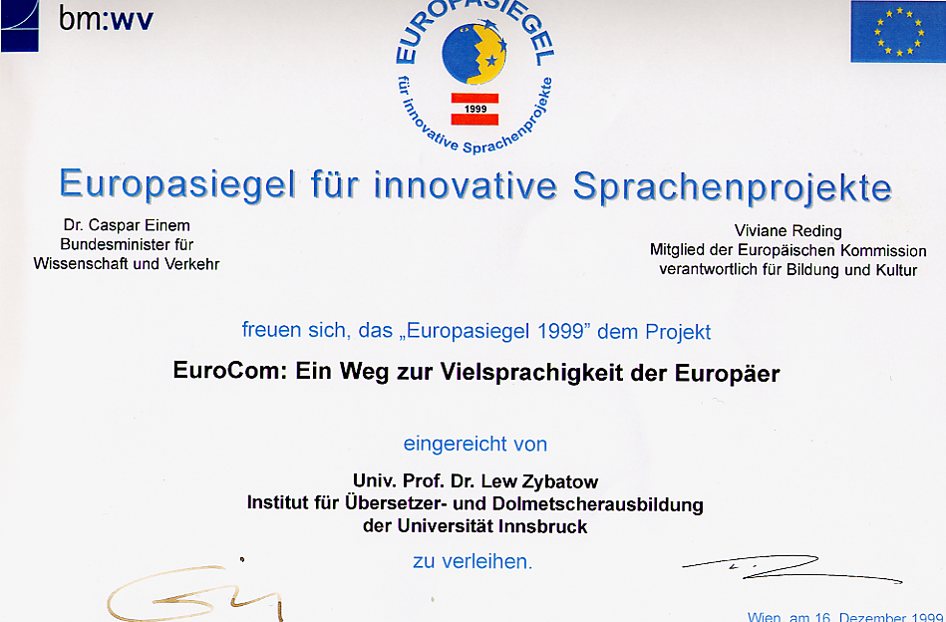The International Academy for Translation and Interpreting - I.A.T.I. e.V. - is a registered association that has set the goal
to promote the discipline of translation studies and thus also the training and professional issues related to translation and interpreting as much as possible;
to strengthen the scientific foundations of translation (TRANSLATA conference) and to pave the way for the transfer of science into translation-relevant practical areas;
to create interfaces (ITC Innsbruck Translation Center) for a fruitful exchange between translation theory, translation didactics, training, professional practice and professional training;
to take up and use innovative approaches in research, training and practice that are not (or inadequately) offered to students during training at their home university, in order to react flexibly to developments in modern translation practice,
see translation-specific teaching of foreign languages: Habilitation projekt LANGTI (Languages for Translation and Interpreting) of Astrid Schmidhofer and Volume 23 "Forum Translation Studies",
Intercomprehension for multilingual translator training: Michael Ustaszewski: Interkomprehension; Project MultiTransInn –Lew Zybatow - V. 11 „Forum Translationswissenschaft“

For 20 years, in cooperation with university and non-university partners (university institutes for translation and translation studies worldwide, e.g. Innsbruck INTRAWI, Brussels Directorate General for Translation of the European Commission, other academies and translation centers, e.g. ITC Innsbruck, Rechtsdialog.org, national professional associations, e.g. UNIVERSITAS in Austria, BDÜ in Germany etc.)
we have been conducting permanent events: s. opening speech of TRANSLATA, summer school IATI-SummerTrans, workshops, special courses, etc., designed and implemented to combine translation theory and practice and to transfer science into practice.
The International Academy for Translation and Interpreting aims to:
- organise seminars which are not offered to the students at their home institutions and can be accredited, in project-oriented partnerships with departments of translation studies;
- facilitate translation research as well as future translators and interpreters;
- organise events in order to connect translation theory and practise thus transfering the result of translation and interpreting research into practise;
- communicate with consultants and experts for translation and intercultural research projects.

